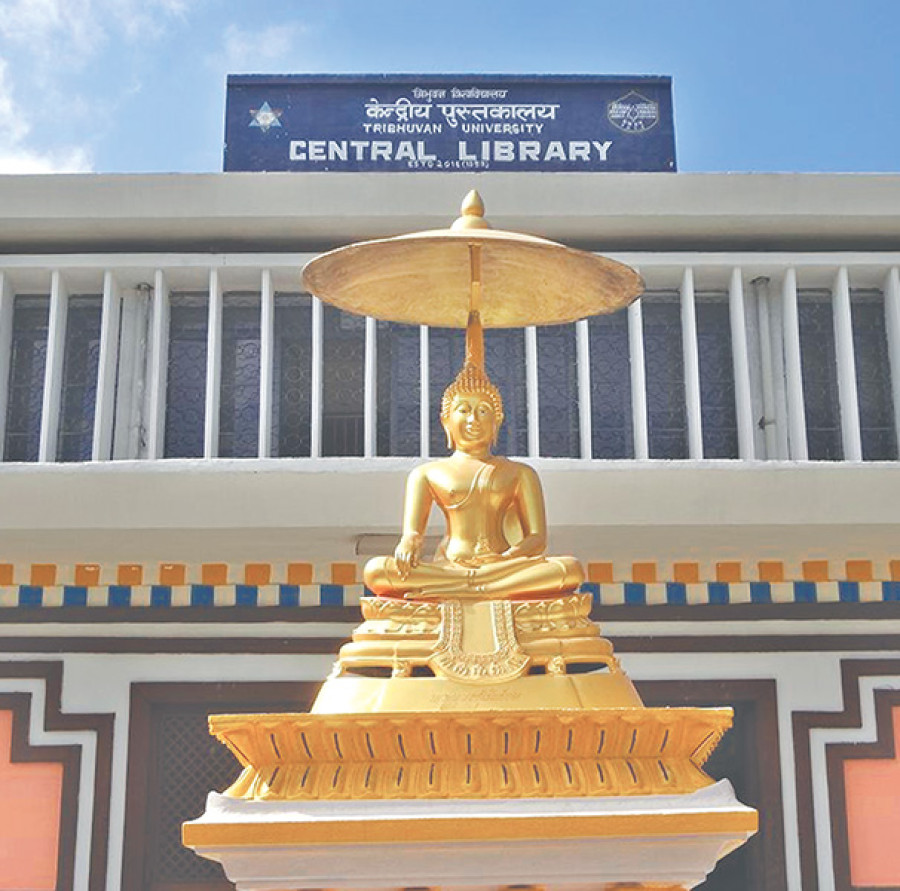Miscellaneous
International ISBN body seeks clarification from TU Central Library
The International ISBN Association has sought clarification from the Tribhuvan University Central Library about its issuance of ISBN barcodes to books published in Nepal, following a report in The Kathmandu Post earlier this week about the ineffectiveness of those identification numbers in the majority of the books published in Nepal.
Bibhu Luitel
The International ISBN Association has sought clarification from the Tribhuvan University Central Library about its issuance of ISBN barcodes to books published in Nepal, following a report in The Kathmandu Post earlier this week about the ineffectiveness of those identification numbers in the majority of the books published in the country.
In an email to Central Library chief Indra Prasad Adhikari and ISBN issuing officer Kishor Kayastha, a copy of which was obtained by the Post, the head of the international body for ISBN in London questioned Adhikari’s assertion that the lack of an ISBN software was leading to errors in issuing unique identifying numbers.
“The International ISBN Agency provides the ISBN Calculator for the generation of ISBNs themselves, and it is, of course, possible for an agency to use our website to record its allocations directly if they desired,” said Nick Woods, operations manager of the International ISBN Agency in the email. “What other software did you have in mind that is not available to you?”
The email was sent the same day the Post’s report was published, which outlined in detail how the haphazard allocation of ISBNs was leading to the duplication of what are supposed to be unique identifiers. The report also pointed out most of the ISBNs issued for Nepali books did not show up on online databases.
In the report, Adhikari had pointed to an institutional failure to forward a list of ISBNs to the International ISBN Agency. Woods asserted that “it is true that your data file of publisher allocations has not been sent to us” and that it was “the responsibility of national ISBN agencies such as yours to make a Books In Print listing available (such a listing would include the details of the actual publications available in Nepal).”
However, Woods clarified that even if the data had been sent, publication details would not appear on the internet and that the Central Library could consider “setting up a listing of publications in Nepal and sending this listing to relevant stakeholders in the publishing supply chain.”
Adhikari’s response to Woods, which the Post also obtained a copy of, assured that they had “started data entry of the ISBNs distributed so far by means of recruiting temporary semi-skilled manpower” and that they were working towards making “ISBN distribution run online from any part of Nepal.”
In a letter to the Post, Adhikari clarified the TU Central Library’s position, admitting that there was “a lot to do to improve the current distribution system of ISBN” and also in “making the ISBN database accessible worldwide.” Both these processes will “probably” be complete by the end of March 2019, he assured.
Adhikari, however, said that the TU central library, the national ISBN agency, is not alone to blame. Publishers themselves were responsible for issuing the same ISBN and the same barcode to multiple books, and not providing the library with “exact information,” he said in the letter to the Post. However, Adhikari admitted that it was the Central Library’s sole responsibility to make the ISBN system work effectively, “no matter whose fault it is if not run properly.”




 9.4°C Kathmandu
9.4°C Kathmandu










